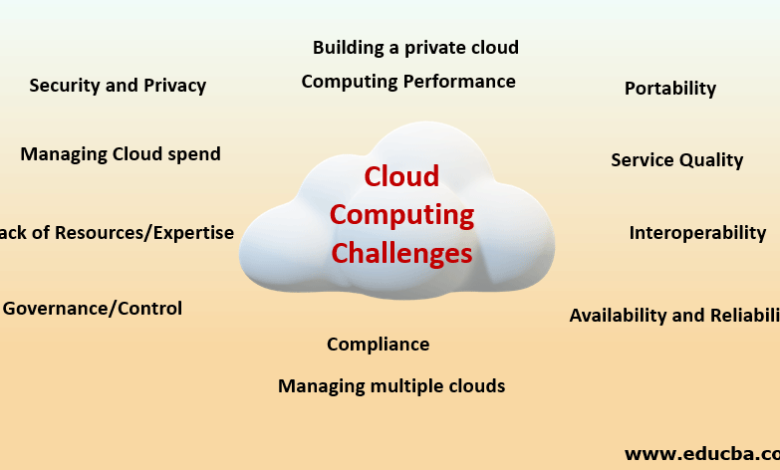Cloud computing the benefits and challenges of storing data and applications in the cloud

Cloud computing is a popular technology that enables users to store and access data and applications over the Internet instead of using local servers or devices. This approach offers several benefits, such as scalability, flexibility, cost savings, and improved collaboration. However, it also presents some challenges that need to be addressed to ensure the security, reliability, and efficiency of cloud-based solutions.
Benefits of cloud computing:
- Scalability: Cloud computing enables businesses to easily scale up or down their resources based on their needs. They can quickly provision additional computing power, storage, or bandwidth without worrying about hardware constraints or long lead times.
- Flexibility: Cloud computing enables users to access their data and applications from anywhere and on any device with an internet connection. This flexibility allows for remote work, mobility, and improved productivity.
- Cost savings: Cloud computing eliminates the need for businesses to purchase and maintain expensive hardware and software. Instead, they can pay for the resources they use on a subscription basis, which can result in significant cost savings.
- Improved collaboration: Cloud computing enables teams to collaborate more effectively by providing centralized access to data and applications. This approach can enhance communication, productivity, and decision-making.
Challenges of cloud computing:
- Security: Cloud computing raises security concerns as users rely on third-party providers to store and manage their data. This reliance requires users to trust that the provider has implemented adequate security measures to protect their data from unauthorized access or breaches.
- Reliability: Cloud computing is dependent on internet connectivity and the performance of third-party providers. If the provider experiences downtime or performance issues, users may be unable to access their data or applications.
- Compliance: Cloud computing raises compliance issues as businesses need to ensure that they comply with various regulations and standards related to data privacy, security, and confidentiality.
- Integration: Cloud computing can be challenging to integrate with existing IT systems, especially legacy systems. This integration requires careful planning and execution to ensure that the cloud-based solution works seamlessly with existing applications and infrastructure.
In conclusion, cloud computing offers numerous benefits that can improve the efficiency, flexibility, and cost-effectiveness of IT operations. However, it also presents some challenges that need to be addressed to ensure that users can trust the cloud-based solutions and that they meet their business requirements.
To address the challenges of cloud computing, businesses, and individuals can take several steps to ensure the security, reliability, and efficiency of their cloud-based solutions:
- Choose a reputable provider: Selecting a reputable provider with a proven track record of delivering reliable and secure cloud services is essential. Businesses should consider the provider’s security practices, certifications, compliance with standards, and data protection policies.
- Implement security measures: Businesses should implement security measures to protect their data in the cloud. This may include encrypting data, using strong passwords, enabling two-factor authentication, and implementing access controls.
- Monitor performance: Businesses should regularly monitor the performance of their cloud-based solutions and have a plan in place to address any issues that may arise. This may involve using performance monitoring tools, setting up alerts, and having a backup plan in case of downtime or disruptions.
- Comply with regulations: Businesses must ensure that they comply with relevant regulations and standards related to data privacy, security, and confidentiality. This may involve conducting regular audits, implementing data retention policies, and using data classification tools to ensure that sensitive data is properly protected.
- Plan for integration: When adopting cloud computing, businesses should carefully plan the integration of their existing IT systems with the cloud-based solution. This may involve working with a trusted partner or consultant who has expertise in cloud integration.
In conclusion, while cloud computing offers numerous benefits, it also presents some challenges that need to be addressed. By taking the appropriate steps to ensure security, reliability, compliance, and integration, businesses and individuals can fully realize the benefits of cloud computing while mitigating the risks.


